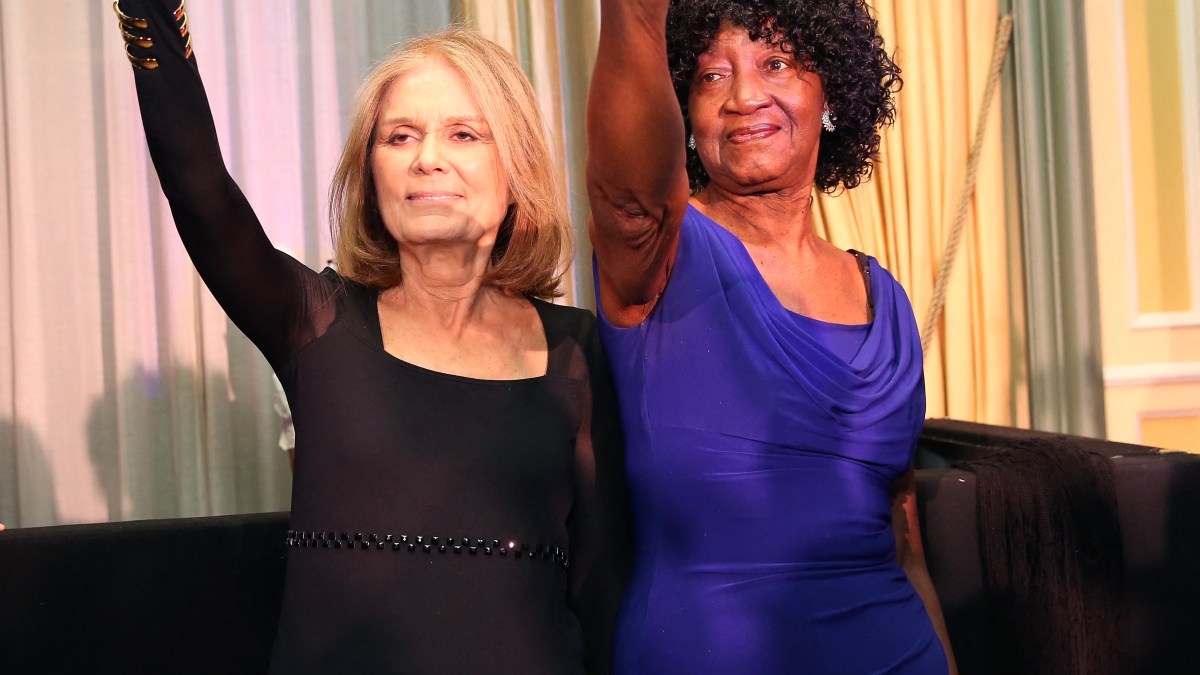American Black feminist, activist Dorothy Pitman Hughes dies, 84
Pioneering Black-American feminist Dorothy Pitman Hughes, a community activist who toured the United States speaking with Gloria Steinem in the 1970s and who appears with her in one of the most iconic photos of the second-wave feminist movement, has died. She was 84.
Hughes, also a child welfare advocate, died on December 1 in Tampa, Florida, at the home of her daughter, Delethia Ridley Malmsten, who said the cause was old age.
Hughes and Steinem, a journalist and political activist, forged a powerful speaking partnership in the early 1970s, touring the country at a time when feminism was seen as predominantly white and middle class. Steinem credited Hughes with helping her become comfortable speaking in public.
In one of the most famous images of the era, taken in October 1971, the two raised their right arms in the Black Power salute. The photo is now on display in the National Portrait Gallery in Washington, DC.
Born Dorothy Jean Ridley on October 2, 1938, in Lumpkin, Georgia, Hughes became an activist at an early age, according to a family obituary.
She organised the first shelter for battered women in New York City and co-founded the New York City Agency for Child Development to broaden childcare services in the city. She also established a community centre on Manhattan’s West Side, offering daycare, job training, advocacy training and more to many families.
By the 1960s she had become involved in the civil rights movement and other causes, working with Martin Luther King Jr, Malcolm X and others.
In the late 1960s, she set up the West 80th Street Childcare Center, providing daycare and also support for parents. It was there that she met Steinem, who was writing a story about the centre. They went on to become friends and speaking partners, addressing gender and race issues at college campuses, community centres and other venues across the country.
In the early 1970s, Hughes also helped found, with Steinem, the Women’s Action Alliance, a broad network of feminist activists aiming to coordinate resources and push for equality on a national level.
By the 1980s, Hughes had moved to Harlem and opened Harlem Office Supply, the rare stationery store at the time that was run by a Black woman. But she was forced to sell the store when a Staples opened nearby, part of President Bill Clinton’s Upper Manhattan Empowerment Zone programme.
She would remember some of her experiences in her 2000 book, Wake Up and Smell the Dollars! Whose Inner City Is This Anyway!: One Woman’s Struggle Against Sexism, Classism, Racism, Gentrification, and the Empowerment Zone.
In Ms Magazine, Laura L Lovett, whose biography of Hughes, With Her Fist Raised, came out last year, said the activist “defined herself as a feminist, but rooted her feminism in her experience and in more fundamental needs for safety, food, shelter and child care”.
She is survived by three daughters: Malmsten, Patrice Quinn and Angela Hughes.




